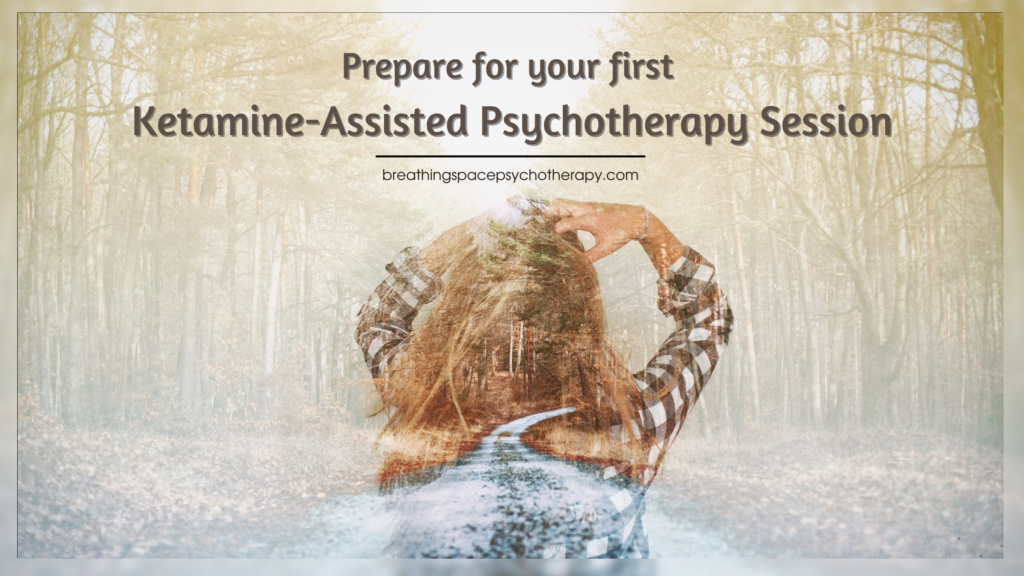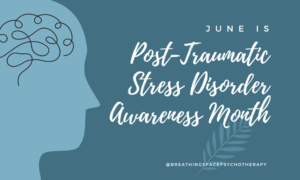| What is Ketamine-Assisted Psychotherapy? Ketamine Assisted Psychotherapy (KAP) combines the use of ketamine with adjunctive psychotherapy to treat treatment-resistant mood disorders, PTSD, and anxiety. |
Who benefits from Ketamine-Assisted Psychotherapy?
Not everyone responds to antidepressants, or psychotherapy alone. People who don’t respond to 2 or more trials of SSRIs or SNRIs are considered to have Treatment-Resistant Depression. Ketamine may help those who have tried SSRIs, talk therapy, or other treatments but whose symptoms still have not improved. Ketamine can also help people who feel stuck in their therapeutic process, or who want to shift the thought patterns that keep them in a loop of anxiety or trauma.
Individuals who experience severe depression, are treatment resistant, and/or have clinically significant PTSD or anxiety symptoms may benefit from Ketamine-Assisted Psychotherapy. Some clinics also use ketamine for Substance Use Disorder, OCD, mood disorders, and certain pain syndromes.
Who does not benefit from Ketamine-Assisted Psychotherapy?
While ketamine is generally better tolerated than other antidepressants, there are a few factors that can prevent you from trying ketamine therapies. You will not be administered ketamine at Breathing Space Psychotherapy if:
-
- You have schizophrenia,
-
- You or your family has a history of psychosis,
-
- You have high blood pressure that is not well-managed, or
-
- You have an uncontrolled Substance Use Disorder.
What does KAP treatment look like at Breathing Space?
Typical sublingual ketamine-assisted psychotherapy (KAP) treatment can vary depending on the specific treatment plan and goals of the patient. However, here is a general outline of what sublingual KAP treatment may involve:
-
Preparation: Before the dosing session, the client will meet with a Journey Clinical medical provider ($250) to assess their appropriateness for KAP. If approved, the provider will write a prescription ($45-75) for the client’s specific dosage to be mailed to the client’s home.
-
The psychotherapist will then meet with the client to discuss their treatment goals and any concerns or questions they have about the ketamine treatment. The client will also be instructed to abstain from food or drink for a period of time prior to the dosing session, as this can affect the absorption of the ketamine
-
Administration: At the dosing session, the client with bring their prescription with them. After determining vital signs are within normal limits, the client will put their sublingual ketamine tablet into their mouth to dissolve under their tongue. The therapist may guide the patient through some breathing or relaxation exercises to help them prepare for the experience.
-
Ketamine experience: The effects of sublingual ketamine can vary depending on the dosage and individual factors, but clients typically experience altered perception, feelings of detachment, and a sense of relaxation. The therapist will be present throughout the experience to offer support and guidance as needed. You will need to have someone drive you home as you will not be able to drive for the rest of the day.
-
Integration: After the ketamine experience, either that day or in the coming week, the therapist will work with the client to help them integrate the experience into their daily life and ongoing treatment plan. This may involve discussing the client’s insights and emotions, exploring any images or memories that arose during the session, and working on specific goals or intentions for the treatment.
-
Follow-up: Depending on the treatment plan, the client may have additional sublingual KAP sessions in the coming weeks or months. The therapist and Journey Clinical medication provider will continue to monitor the client’s progress and work with them to make adjustments as needed.
- The client must have a follow-up session with their Journey Clinical medication provider ($150) after the dosing session to be sure that they continue to have the correct prescription.
It’s important to note that sublingual ketamine-assisted psychotherapy should always be conducted under the guidance of a trained and licensed healthcare professional and in a safe and controlled environment. The dosage, timing, and other factors of the treatment will be customized for each client based on their individual needs and goals.
How do I prepare for my first session?
While your journey with Ketamine-Assisted Psychotherapy will look different from someone else’s journey, here are a few notes to keep in mind:
-
- Fast 4-6 hours before your KAP session and limit water intake.
-
- Avoid caffeinated drinks on the day of your session.
-
- Talk to your doctor and therapist about your medication beforehand.
-
- Wear comfortable clothes for your session.
-
- Ensure you have a ride home–whether it’s a family member or an uber, you MUST have someone else to drive you home after your KAP sessions.
-
- Adjust your schedule. Ensure that you have no other major responsibilities to attend to on the day of your session because you will want to focus on rest and recovery after your session.
What to bring
You may want to bring:
-
- a playlist of music without lyrics, such as binaural beats,
-
- headphones (these may be provided for you),
-
- an eyemask (this may be provided for you),
-
- a blanket,
-
- comfortable clothes.
Bonus Tips
-
- You may want to meditate before your session to clear your mind.
-
- Talk to your therapist about your expectations before the session.
-
- Minimize stress before your session, so you have a clearer mind going into the session.
-
- Go to the restroom before your session.
-
- Avoid eating processed foods and try eating healthy foods in the days leading up to your session. Eating healthy foods can help with your overall well-being, further making ketamine treatment more beneficial.
What should I do after my session?
After your session, you should focus on rest and recovery.
Allow your mind and body to rest and recover. Use this time to engage in self-care.
Remember the medical requirements after your session. Because you will still be under the effects of ketamine:
-
- Do not drive a car.
-
- Do not operate heavy machinery.
-
- Do not consume alcohol or other substances.
-
- Do not make important decisions.
-
- Talk to your doctor about which medications you can take after your session.
Wait until the following day when you have returned to your normal self.
What to Eat and Drink After Your KAP Session
Hydrate! After your KAP session, you can resume drinking water. Remember to avoid drinking alcohol until the following day.
You may want to start with mild foods and gradually return to your normal diet. Try eating whole, nourishing foods and avoiding processed food.
Tips for Self-Care
Choose to do activities that you enjoy, such as taking a walk, reading, talking with loved ones, journalling, meditating, or playing. You may want to avoid doing activities that are physically demanding. If you find yourself becoming nauseous, lay down with your eyes closed.






